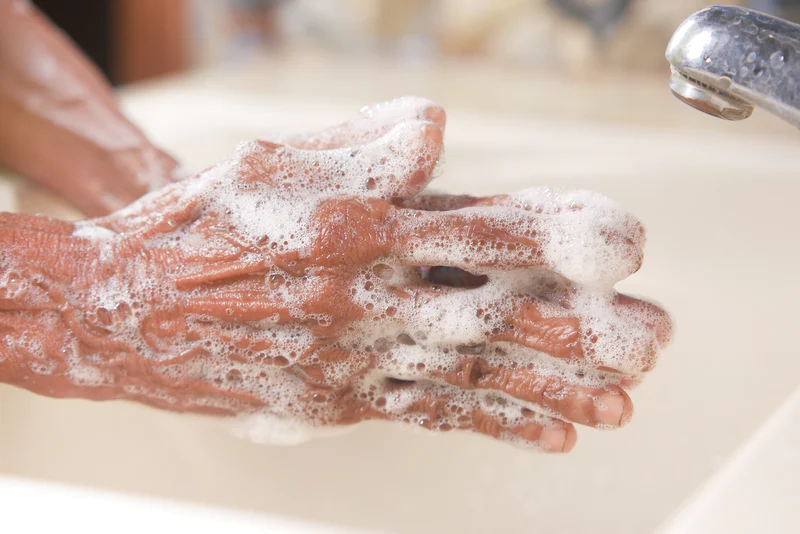A Preparation Guide For You Environmental Health Officers (EHOs) & Food Businesses

As a food business (catering, retail or manufacturing), Environmental Health Officers (EHOs) are a part of your enterprise, and if you are curious about who they are and what their responsibilities are, then this guide is for you.
What is an EHO?
An Environmental Health Officer (EHO) is a certified and trained professional whose primary role is to protect the general public from food and environmental hazards from food businesses. They can also be referred to as Environmental Health Practitioners or Public Health Inspectors.
The common belief is that their inspections only revolve around food hygiene and safety, however, it actually varies. Most EHOs have over 100 different kinds of establishments under their supervision and not just restaurants, hotels and catering vans, but also rented estates, care centres and public properties.
What do EHOs do exactly?
No two days are the same for an EHO; the tasks may even differ within the hour as well, depending on the food business. When hired, their tasks go beyond just risk assessments and also include taking action if they detect hazards or health and safety breaches, and advising the business how to improve accordingly.
Who do EHOs work for?
Usually, EHOs are hired by the local authority to support food businesses in their area and are assigned supervision tasks when they receive health and safety complaints.
Private and public businesses are both also known to hire EHOs for their expertise, such as manufacturers, health and safety consultancies and the Health and Safety Executive, or public health departments in other countries.
What powers do EHOs have?
When it comes to regulatory assessments, EHOs have certain powers to ensure they can perform their job when a health and safety breach has been committed.
EHOs have the authority to:
- Enter any premises at any reasonable time without notice - it is against the law to prevent an EHO from entering your premises.
- Detain food - If health and safety standards of the business have been breached, EHOs have the full right to take away food from sale or consumption as a safety precaution.
- Premise control - EHOs have full power to enforce legislation if food businesses break the Food Safety Act of 1990, including improvement orders, prohibition orders, Hygiene Emergency Prohibition Notices and seizure & detention orders. It is a criminal offence to ignore any formal notice or order.
- Sampling - If EHOs suspect any food hazard or contamination, they are within their full rights to take pictures and samples of the food to test further.
How often will EHOs visit your business?
There is no set number of times EHOs will visit your food business. It depends on the type of business and the seriousness of the hazards in your establishment, but there are certain situations that would cause an EHO to visit your business:
- Extreme change(s) in business operations
- Equipment issue(s)
- Serving vulnerable groups
- Being a new business
- Complaints to the local authority
Approximately, if your business has frequent hygiene and safety hazards, an EHO will visit you every six months; otherwise, you will get EHO visitations once every two years. If your business had multiple hazard incidents, the EHO will work closely with the business owner and manager and advise them on how to reduce all possible food and environmental risks.
After the EHO inspects your premises, they will give you a rating, which is different across the UK.
In England, Wales, and Northern Ireland, EHOs rate food businesses using The Food Hygiene Rating Scheme (FHRS):
- 0 - Urgent improvement required
- 1 - Major improvement necessary
- 2 - Some improvement necessary
- 3 - Generally satisfactory
- 4 - Good
- 5 - Very good
In Scotland, EHOs rate food business based on the Food Hygiene Information Scheme (FHIS):
- Exempt Premises - The business poses a low-risk to public safety and is not viewed as a food business by customers.
- Improvement Required - The business has failed to meet the industry food safety and hygiene standards.
- Pass - The business meets the industry standards and is a place that serves or sells safe food.
Lastly, if your food business receives an “Awaiting Inspection” certificate, it is to signify that your business has yet to be inspected.
If you would like to see your business’s food hygiene rank, click here.
What will EHOs inspect when they visit you?
If your business handles or stores food, an EHO will certainly visit your premises to ensure you comply with the current food laws and regulations. Usually, an EHO will inspect the food that you serve or sell, equipment and documents used in relation to food, and observe your interaction with customers.
To get more specific, these are the areas of your business EHOs will evaluate.
- Temperature - checking that suitable temperatures are met when cooking, cooling and displaying food. Here is a quick guide on how to keep temperature records.
- Personal hygiene - making sure that the food handlers are practising safe hygiene, such as handwashing and protective clothing (ex: gloves and aprons).
- Food labelling - checking the validity of date marks (shelf-life, best before, and use-by) and allergen information of all the food sold and prepared.
- Food safety management systems - making sure you and your employees follow a suitable food safety management system based on HACCP principles. Click here for a simple guide on HACCP for food businesses.
- Contamination prevention methods - checking what systems you have in place to prevent microbiological, chemical, physical and allergenic hazards. Here is a simple guide on how to prevent all four hazards.
- Equipment hygiene - checking the cleanliness and functionality of all equipment used in the food business.
- General premise condition - a general hygiene inspection will also be conducted of the overall business, such as construction, design of the food handling areas, staff bathrooms, and customer sitting areas.
How to prepare for a visit?
The best way to prepare for an EHO visit is to practise the best hygiene standards at all times at your food business, as an EHO may visit you at any random time. To ensure a smooth visit, maintain accurate, truthful records that detail traceability and prove that all reasonable precautions were taken to ensure food safety, and the present risk alerted by the EHO is a singular incident. All business documents should be kept at the business location and not at the home of the owner(s) or manager(s).
If you are eager to train yourself and your team in proper safe food handling and management, check out ourLevel 2 Food Hygiene and Safety for catering staff,Level 2 HACCP for Catering and Retail,Level 3 Food Safety and Hygiene for supervisors courses andmany more.
From the blog

Do I Need a Level 1, 2 or 3 Food Hygiene Certificate?
In the UK, food business operators have a legal requirement to ensure all food handlers are trained in food safety and hygiene. But with so many different kinds available it can be difficult to know which one you need. Read this guide to find out.


Should Your Small Business Use a Learning Management System (LMS)?
Ready streamline your small business? A Learning Management System (LMS) could be what you need. But what exactly is an LMS and how can it help your business? Join us as we explore the ins and outs of LMS and whether it's the right choice for your business.